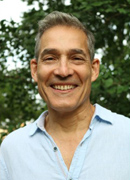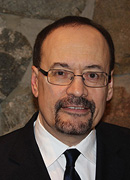Kennon Sheldon received his B.S. in Psychology in 1981, and his PhD in Social and Personality Psychology from the University of California-Davis in 1992, mentored by Positive Psychology’s Bob Emmons. After six years at New York’s University of Rochester, where he absorbed and applied Deci and Ryan’s Self Determination Theory, he joined the faculty at the University of Missouri in Columbia where he’s been a full Professor since 2007.Ken was present at the “birth” of positive psychology–the founding conference in Akumal, Mexico, held in January, 1999, and won the John Templeton Positive Psychology Prize” in 2002 for his contributions to this emerging field of positive psychology. He served as the book review editor for the Journal of Positive Psychology from 2006 to 2009, and remains active in the movement to this day. His primary interests are focused on positive psychology: goals, motivation, and psychological well-being.
Ken has been awarded numerous grants from NIMH, NIAAA, and the John Templeton Foundation, as well as the National Science Foundation and university resources, for his research on positive psychology. Most notably, Ken and eminent psychologist Sonya Lyubomirsky were co-primary investigators on a million dollar NIMH grant investigating factors which sustain or inhibit increases in happiness levels, leading to the formulation of a “sustainable happiness model.” He and Sonya have continued their collaboration long after their first grant ended and have applied for additional funding for ongoing research on the factors which sustain happiness. Ken also serves on the Advisory Board of two happiness-related companies — Hapacus and Livifi.
Ken’s research with Deci and Ryan’s Self Determination Theory has explored the optimal motivations for pursuing personal goals. Other research interests include the relationship of creativity to motivational conflict and style, exploring the nature of cooperative and competitive behavior in social dilemmas, investigating factors that promote personal goal attainment, and examining the effects of goal pursuit and attainment on mental health.
A prolific writer and dedicated researcher, Ken has authored over 150 peer-reviewed empirical research articles, published in the most prestigious scientific journals ( Journal of Personality and Social Psychology, Personality and Social Psychology Bulletin, Psychological Review, Psychological Inquiry, American Psychologist, Psychological Science ). He has been associate and consulting editors to Motivation and Emotion, the Journal of Research in Personality, and the Journal of Personality.






